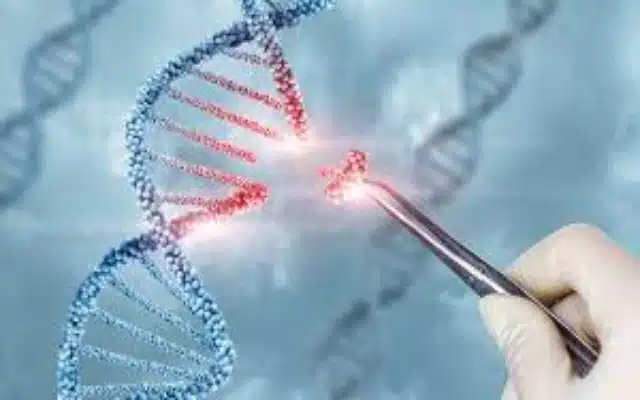New York : In order to cure two children with Rett syndrome, a severe genetic brain condition, a team of US specialists has administered the first new gene therapy in history. As participants in the first-in-human Phase I/II trial of a novel investigational gene therapy, NGN-401, created by US-based Neurogene, they were the first kids in the world to receive the potential treatment.
Rett syndrome is an uncommon neurodevelopmental illness that mostly affects girls. Until the age of 6 to 18 months, most affected girls develop normally. However, at that point, they start to exhibit persistent hand-wringing behavior and significant regression in their verbal and motor skills.
Eventually, this condition causes severe impairments that affect nearly every aspect of their daily lives, including their ability to speak, walk, eat, and breathe.
In 1999, a team led by Dr. Huda Zoghbi, a distinguished service professor at Baylor College of Medicine, founding director of the Jan and Dan Duncan Neurological Research Institute (Duncan NRI) at Texas Children’s Hospital and Howard Hughes Medical Institute investigator, made the transformational discovery that mutations in methyl cytosine binding protein 2 (MECP2) gene causes Rett syndrome.
Texas Children’s and Baylor College have become the first gene therapy trial sites, around 25 years after the discovery. Rett syndrome currently has only one specific treatment available, and that medication does not address the deletion or modification of MECP2, which is the disease’s primary cause.
Therefore, there is an urgent need to create more effective treatments for this debilitating illness.
“Gene therapy is a powerful tool in the treatment arsenal for many devastating genetic conditions, but its application in many complex neurological disorders, especially Rett syndrome, where MECP2 transgene overexpression is toxic, has been limited by the highly variable transgene expression associated with conventional gene therapies,” stated Bernhard Suter, the principal investigator of the Phase I/II clinical trial and an associate professor of pediatrics and neurology at Baylor College.
NGN-401 was specifically created to maximize therapeutic effectiveness while preventing toxicities from transgene overexpression in order to solve these problems.
It is administered as a one-time treatment via the intracerebroventricular (ICV) route, which has been shown to maximise the delivery of the therapeutic MECP2 gene to key areas of the brain implicated in Rett syndrome.
Based on the first two treatment recipients, NGN-401 has no serious side effects to date.
“We are encouraged by the tolerability profile observed in our first two paediatric patients, and look forward to collecting sufficient follow-up data on a larger number of patients to inform the therapeutic potential of NGN-401, which we believe could serve as a best-in-class therapy,” said Rachel McMinn, founder and chief executive officer of Neurogene.

















